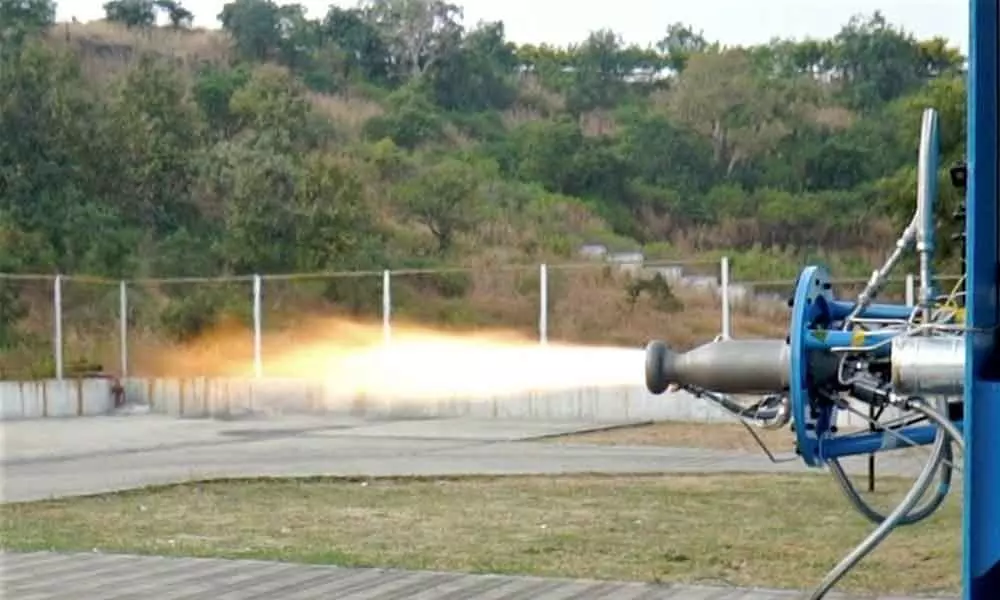Skyroot successfully test fires cryogenic rocket engine
The engine uses LNG and LoX at cryogenic temperatures as propellants, which are high performance, low-cost, and green. The cryogenic engine will be fixed in the upper state of the company’s rocket Vikram-2
image for illustrative purpose

Chennai: PRIVATE rocket startup Skyroot Aerospace Pvt Ltd on Thursday said it has successfully tested its cryogenic engine called Dhawan-1. The company said Dhawan-1 is India's first privately developed cryogenic rocket engine fueled by liquid natural gas (LNG) and liquid oxygen (LoX). The engine uses LNG and LoX at cryogenic temperatures as propellants, which are high performance, low-cost, and green. The cryogenic engine will be fixed in the upper state of the company's rocket Vikram-2.
"These are the rocket propellants of the future, and this test makes us one of the very few companies in the world to have successfully demonstrated this technology," said Pawan Kumar Chandana, Co-Founder and CEO.
He said, the Made-in-India cryogenic engine has been developed using 3D printing with a superalloy, reducing manufacturing time by more than 95 per cent. According to Skyroot Aerospace, it had developed a mobile cryogenic engine test stand and tested the engine at a one of its kind propulsion test facility at Solar Industries India Ltd, Nagpur.
Cryogenic engines are highly efficient rocket propulsion systems that use propellants at cryogenic temperatures (less than minus 150 Degree Celsius).
The cryogenic engines are highly suitable for the upper stages of a rocket. They have a higher specific impulse that enhances the payload/luggage carrying capability. This technology is challenging to master and has been demonstrated only by very few countries.
Skyroot Aerospace has named its cryogenic engine in honour of eminent Indian rocket scientist Satish Dhawan who played an instrumental role in the development of the Indian space programme.
The liquid natural gas, which is more than 90 per cent methane, is considered the rocket fuel of the future. "With this milestone, we have successfully demonstrated all the three propulsion technologies in our Vikram series of space launch vehicles in the first attempt itself, exhibiting great maturity of our team," said Naga Bharath Daka, Co-Founder and COO.
"The complex engine start and shut-off transients are perfectly smooth, combustion was very stable, and pressure was rock steady," said V Gnanagandhi, a Padma Shri awardee and heading the cryogenic propulsion team at Skyroot Aerospace. The company is also developing another rocket Vikram-1 having three solid fuel-powered stages each with a burn time ranging between 80 and 100 seconds.

